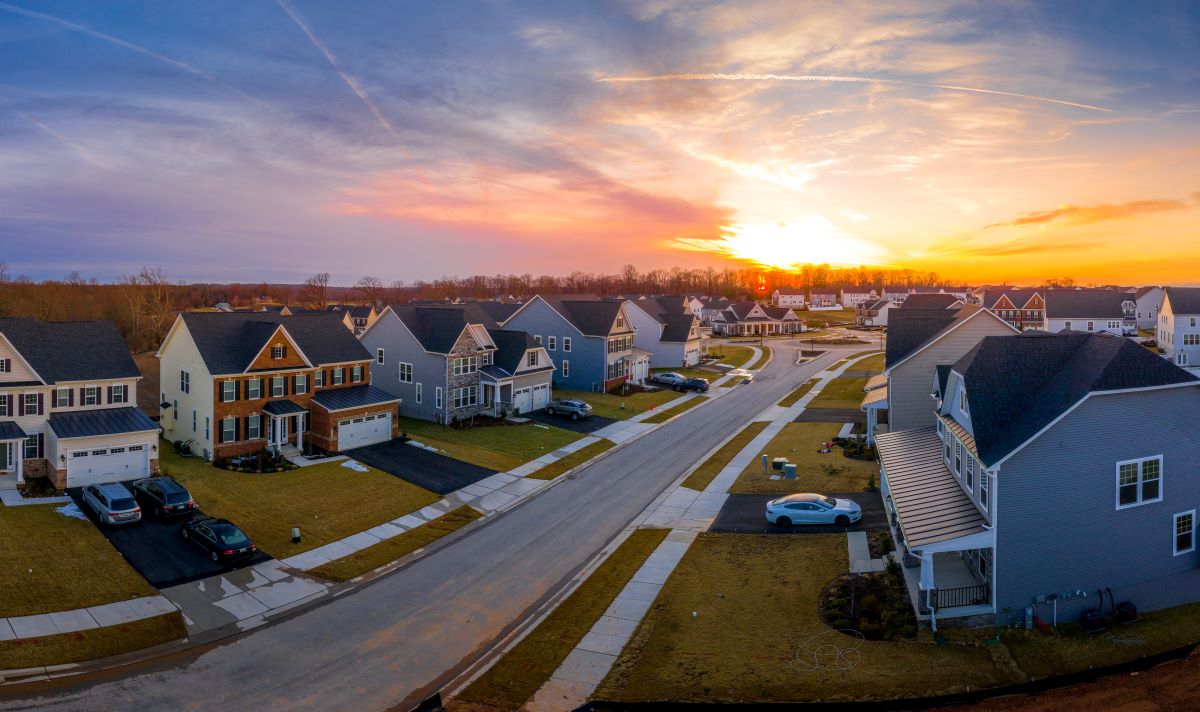The housing market in America is in deep trouble, according to senior economists. Let’s take a look at what they’ve been saying.
The Housing Market Crisis
New data from real estate website Redfin has revealed something that a lot of people may have already realized – the housing market is tough.
Rising Income Requirements
According to their data, people looking to purchase a home would now need to earn 35% more annually than usual to be able to get their foot on the property ladder.
A Barrier to Homeownership
Previously, the nationwide average household income of $84,072 would be enough to afford a house in the U.S., but in the past three years, prices have skyrocketed, and wanna-be homeowners now need to earn $113,520 a year to have a hope of affording housing.
February 2021
According to Redfin, February 2021 marked the last month in which the average household income was enough to buy a house.
With a mounting housing and rental crisis across the U.S., increased housing prices and decreased housing stock are making it tough for many families to get a stable roof over their heads.
The Impact of the Pandemic
In an interview with CNBC, a senior Redfin economist explained, “Since the pandemic, affordability has just totally collapsed.”
A Collapse in Affordability
Since then, there’s been a growing gap in affordable housing, which reached its peak in October 2023 – largely due to soaring mortgage rates that coincided with persistently high home prices, all driven by a lack of available housing.
Soaring Home Prices
According to Redfin data, the median sale price of a home was $412,778 in February 2024, over double the price of a house ten years prior, which was $188,300.
HUD’s Affordability Benchmark
The U.S. Department of Housing and Urban Development (HUD) defines affordable housing as costing no more than 30% of a household’s income, a benchmark that is becoming increasingly difficult for many Americans to meet.
A Slight Improvement in February
Despite a slight improvement in affordability in February – where the average household was falling short by $29,448 a year, down from $40,810 in October 2023 – buyers are remaining hesitant.
A Key Factor in Affordability
Economists chalk this reduction partly up to declining mortgage rates from their peak of 8% in October – the highest since 2000 – coupled with the seasonal dip in home prices during winter.
A Lack Of Options
Families needed an average income of $120,500 to purchase a home when rates were at 8%, leaving many people without options.
Buyer Caution
However, potential buyers are wary of entering the property market now. Financial planner Veronica Fuentes said, “They’re either holding off, or they’re taking their time.”
Fuentes sees a cautiousness among potential buyers, which she states is influenced by recent layoffs – particularly those in the technology sector.
Job Insecurity and Mortgage Payments
Many people are reevaluating their finances, and while they may not have been laid off, seeing it happen to their coworkers has prompted many to question their ability to keep up with their mortgage payments in the event of job loss and whether their emergency savings are enough.
A Solution for Entry into the Market
For those making the national average income, housing experts suggest that the quickest and easiest way to get on the property ladder would be opting for a starter home.
These are many people’s best bet, as Redfin’s data indicates buyers would need to earn around $76,000 a year to afford one.
Entry-Level Housing
According to Redfin, a starter home is typically found in the lower third of market prices.
A Challenging Reality
Unfortunately, it’s not as easy as it seems, as finding this housing stock has become increasingly difficult. Over the past decade and a half, there’s been a noticeable shift away from constructing these more affordable starter homes.
Vanishing Opportunities
According to housing analysts, the once-common opportunity to buy a home for $120,000 across many parts of the country has largely vanished.
Metropolitan Areas
For those determined to find more affordable housing, there is hope. Metropolitan areas still offer some degree of affordable housing, and Redfin’s data points to 13 regions where earning less than six figures might still secure a typical home.
Offering Affordable Housing Options
Detroit tops this list as the most budget-friendly city, with an annual income of just $46,168 needed to afford a median-priced home.
Affordable Cities
Other cities where home affordability remains within reach for those earning under $100,000 include Cleveland, Pittsburgh, St. Louis, and Philadelphia, to name a few.
Featured Image Credit: Shutterstock / tokar.
The content of this article is for informational purposes only and does not constitute or replace professional advice.
The images used are for illustrative purposes only and may not represent the actual people or places mentioned in the article.
For transparency, this content was partly developed with AI assistance and carefully curated by an experienced editor to be informative and ensure accuracy.





